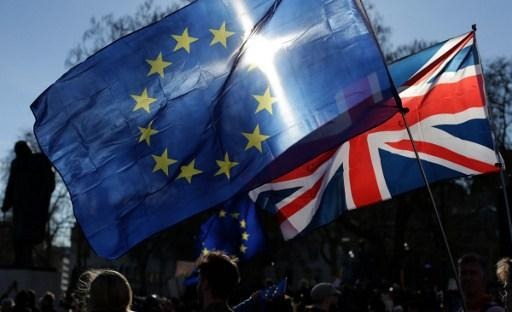With the departure of the United Kingdom from the European Union on January 31, the first stage of Brexit will be over, but that is only the start.
The second stage, which aims to reach an agreement on future relations between the two parties, is already shaping up to be extremely complicated, particularly as London is pressing for the adherence to a tight schedule.
At the stroke of midnight in Brussels on Friday (11:00 PM Big Ben time), 47 years of British EU membership will officially be at an end. However, nothing will change much: admittedly, British MEPs will lose their seats and ministers will no longer be able to take part in the EU decision-making process, but the UK will still be considered a member of the EU internal market and customs union - at least for a while.
The transition period, negotiated to avoid a hard Brexit, technically ends on December 31 2020, unless the British government has requested and obtained a one- or two-year extension before June 30, something Conservative Boris Johnson is refusing to countenance.
This length of time serves to allow London and Brussels the breathing space required to come to as broad an agreement as possible on future trade relations and certain areas of security, as the United Kingdom is to become a non-member state.
The negotiations promise to be particularly complicated since the government wishes to avoid as many tariffs and quotas as possible so as to streamline trade across the Channel, but there are numerous pitfalls.
For example, the British government takes the view that the Europeans will at some time during the talks be demanding that their fishermen can retain access to British fishing waters, as is currently the case under certain conditions. For member states like France, but also for those regions close to the United Kingdom like Flanders, the subject is of some economic importance.
Another sensitive issue is state aid. The EU does not wish to be subject to unfair competition from a neighbouring economy that is likely to relax trade restraints. It will, therefore, be seeking assurances that London sticks as far as possible to current community rules. There are not only trade concerns but also worries relating to social safety nets as well as health and environmental protection.
"It is absolutely clear that there will be negative effects," the EU's chief Brexit negotiator, Michel Barnier, stated. "Whatever the agreement we reach on our future relationship, Brexit will still be a damage limitation exercise."
Everything will have to be worked out within a tight deadline, Boris Johnson wanting at all costs to avoid extending the transition period beyond next December 31. And as the EU is in danger of not agreeing on its own negotiating brief before the end of February, that leaves only 8 to 9 months to reach a deal. At the end of the day, the agreement will still have to be approved by both parties, at the risk of seeing the spectre of a hard exit of the "no-deal" kind re-emerge.
In the absence of a trade deal, the economic relationship between Brussels and London would be governed by World Trade Organisation (WTO) rules, which are much less favourable since they determine customs duties on goods. Michel Barnier stipulated that he would introduce a draft negotiating mandate to member states next Monday.
The Brussels Times

